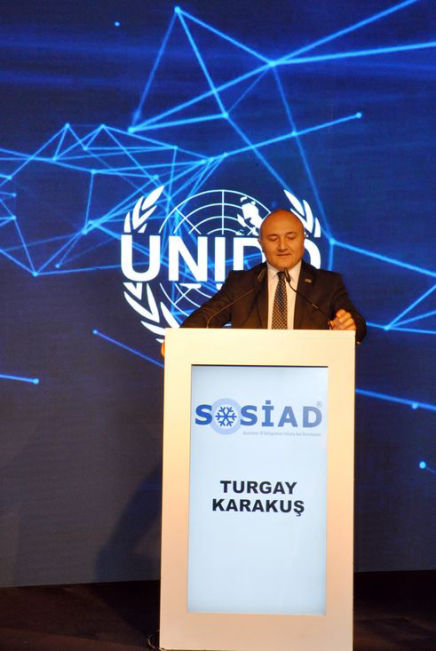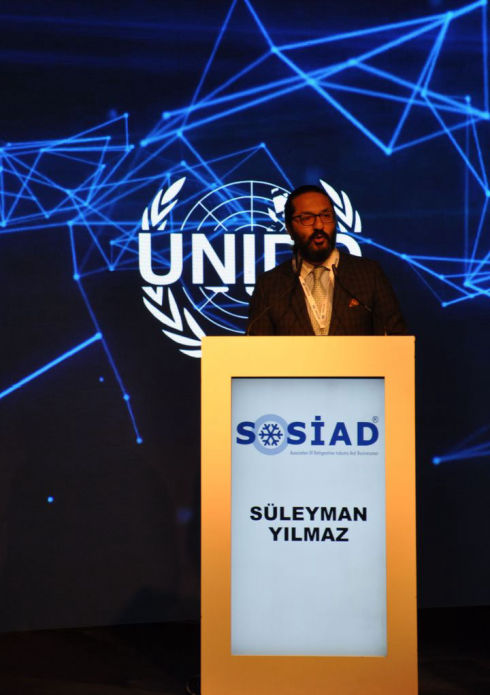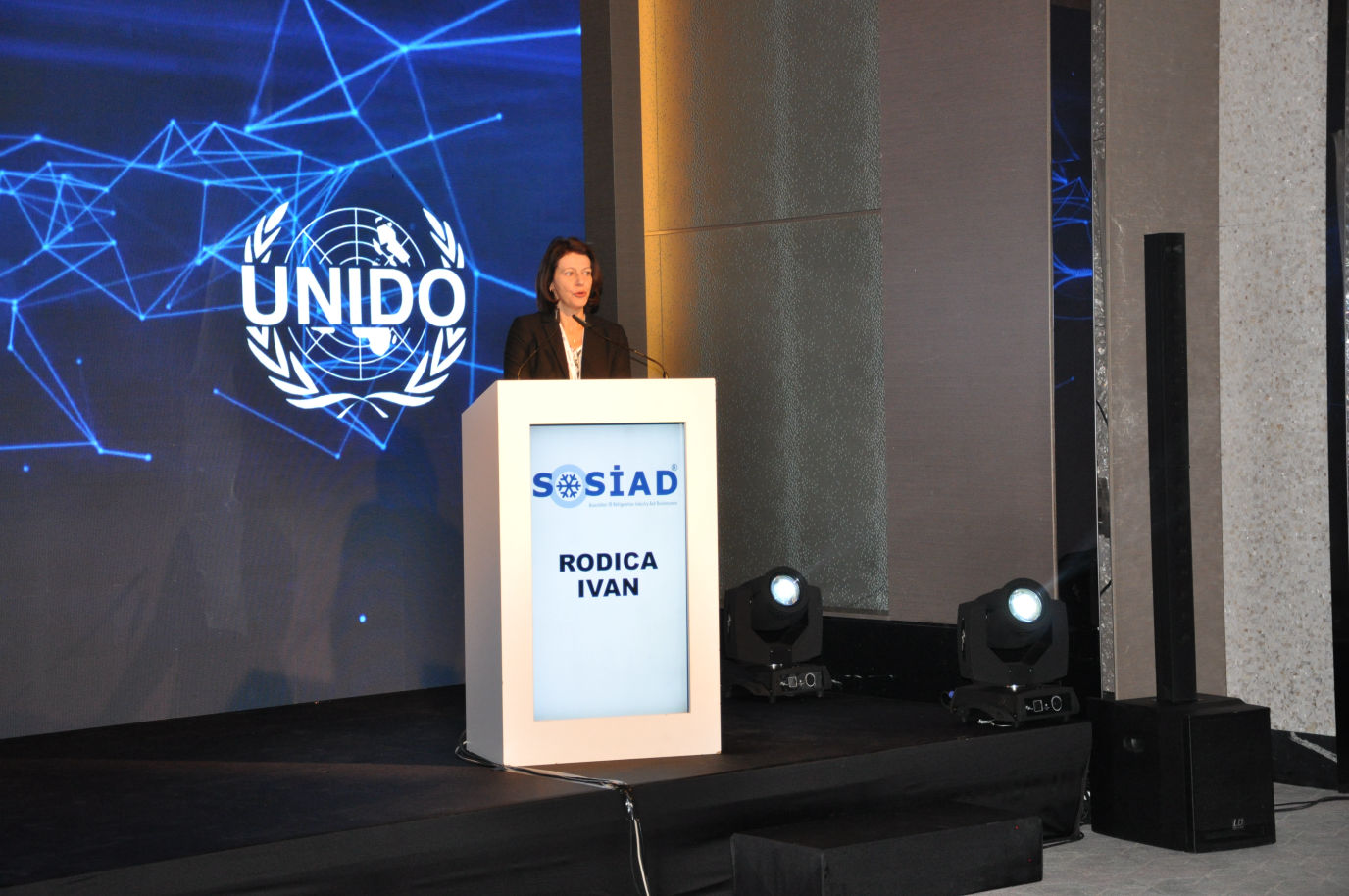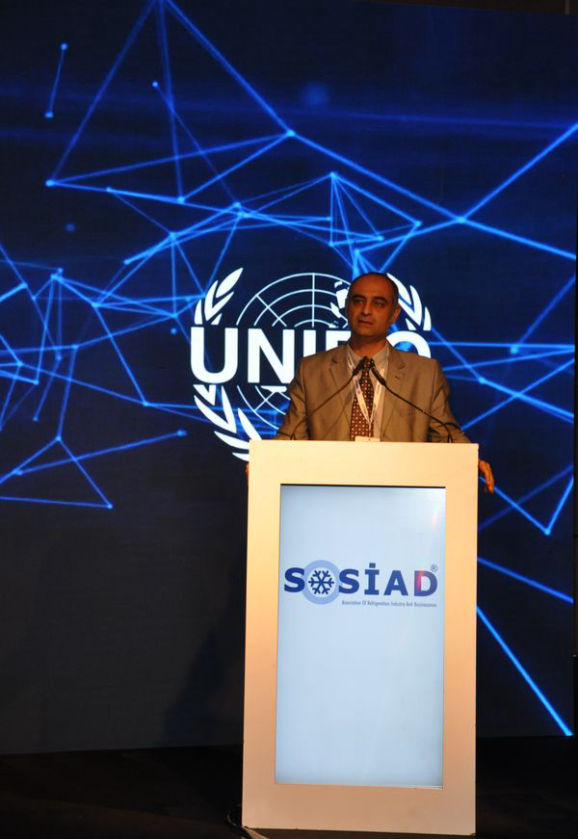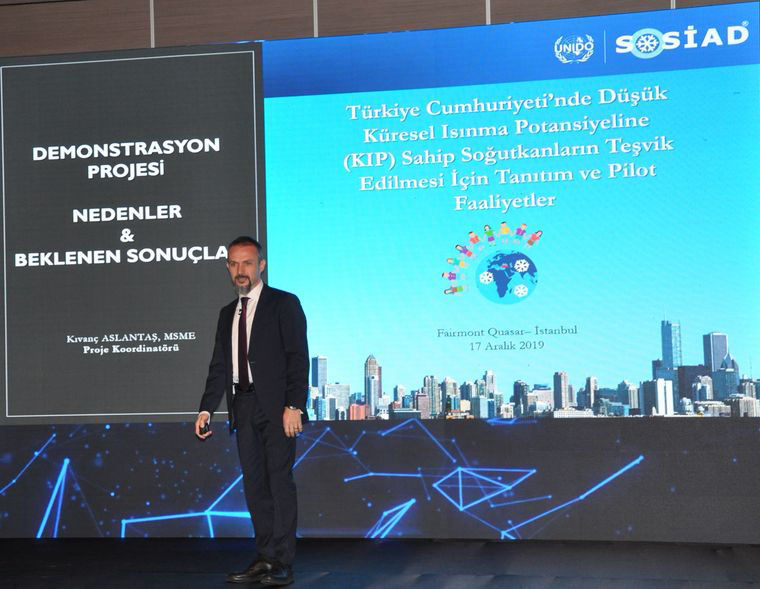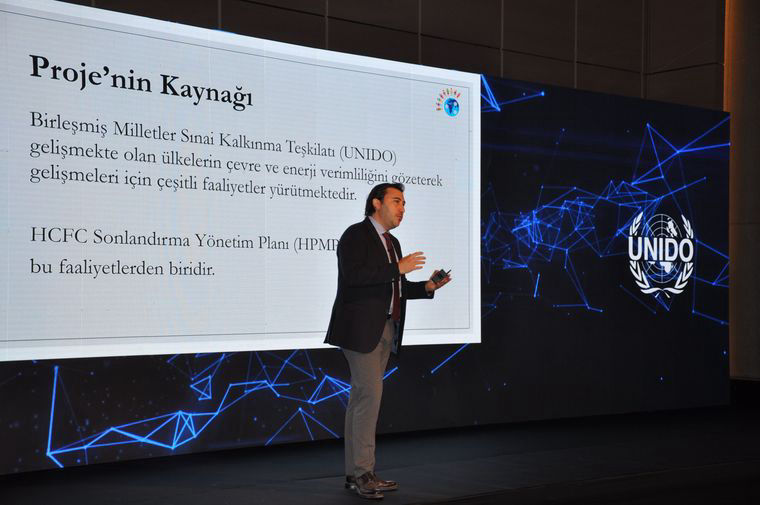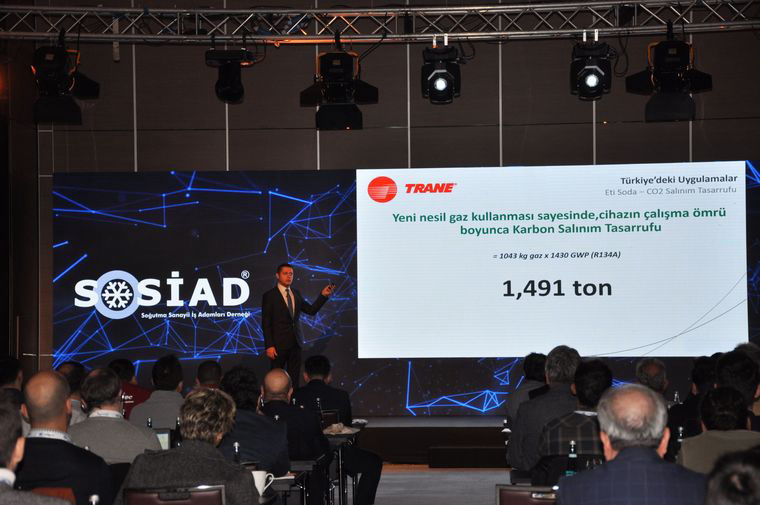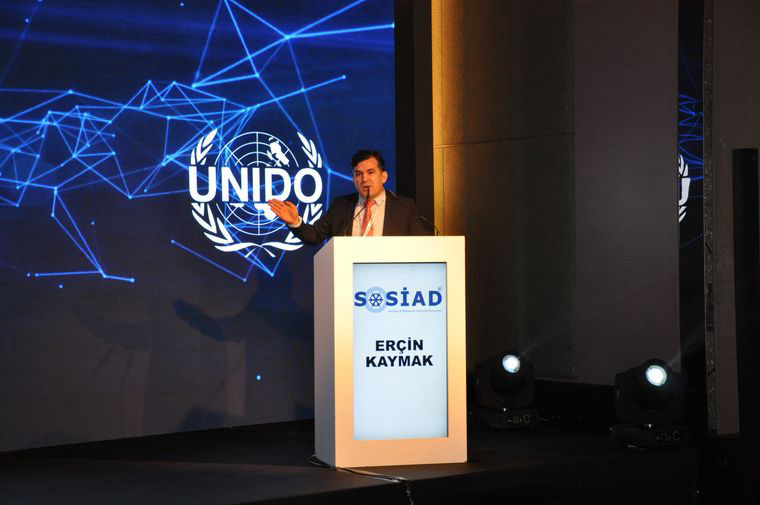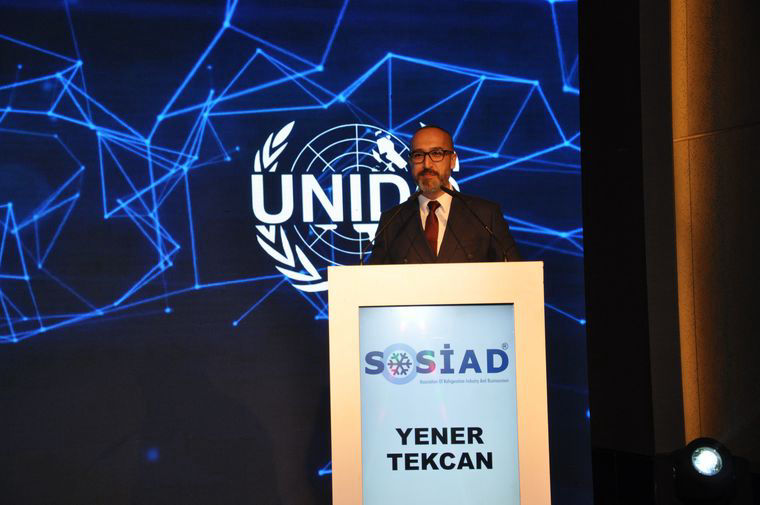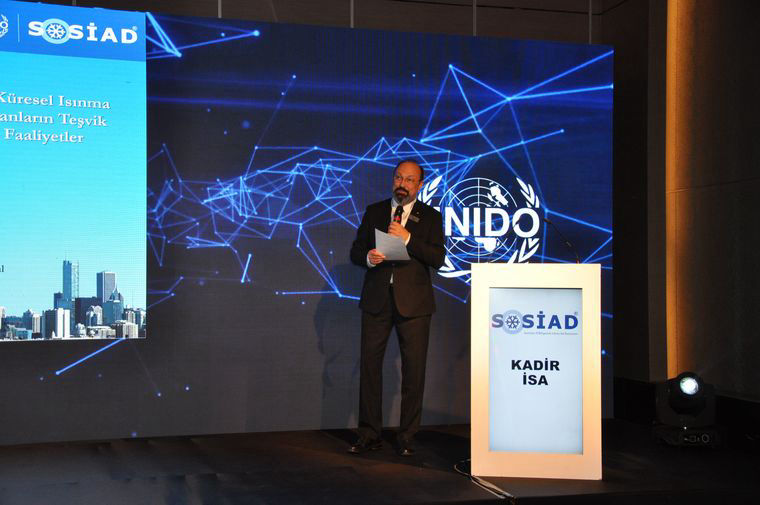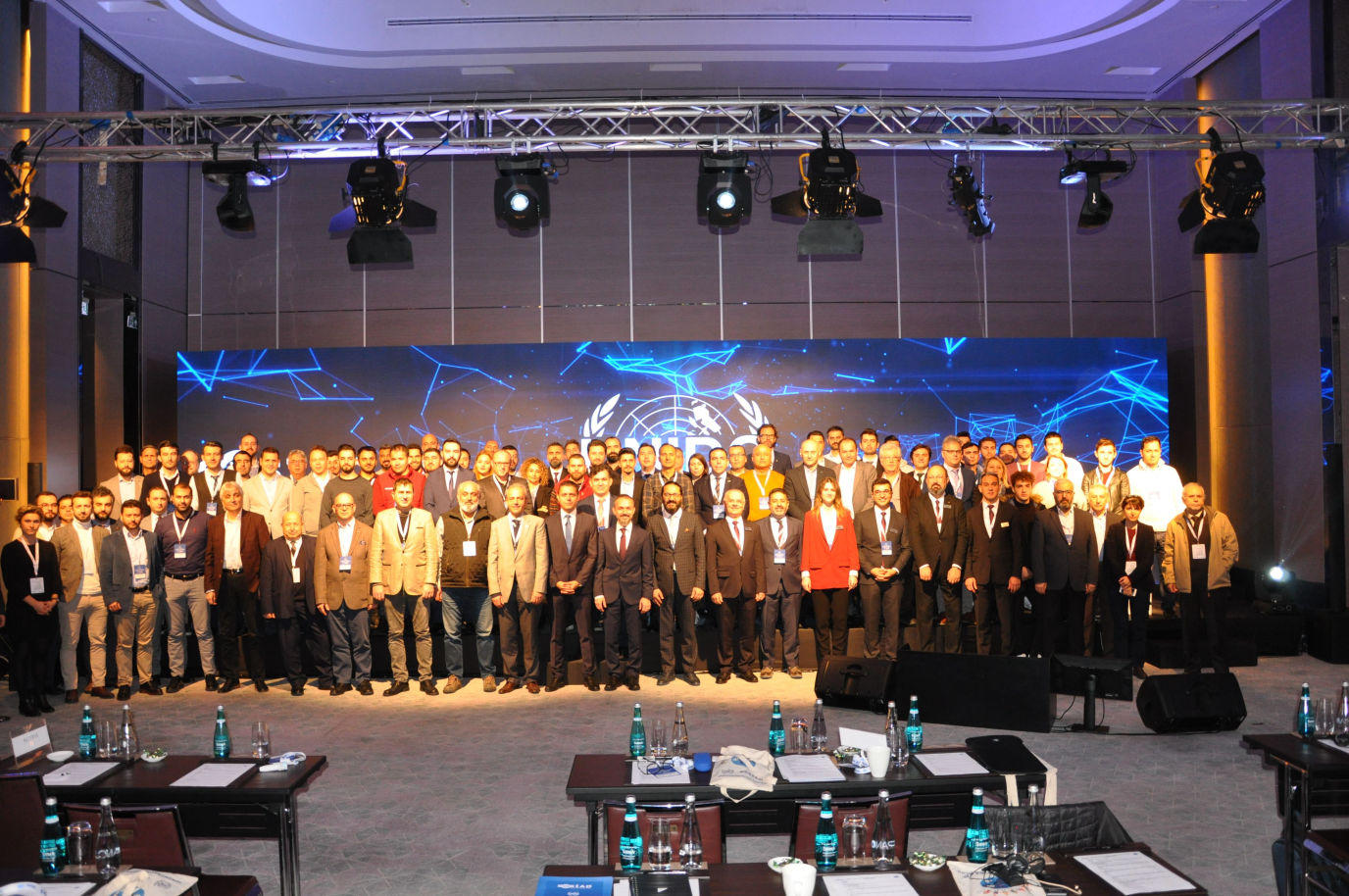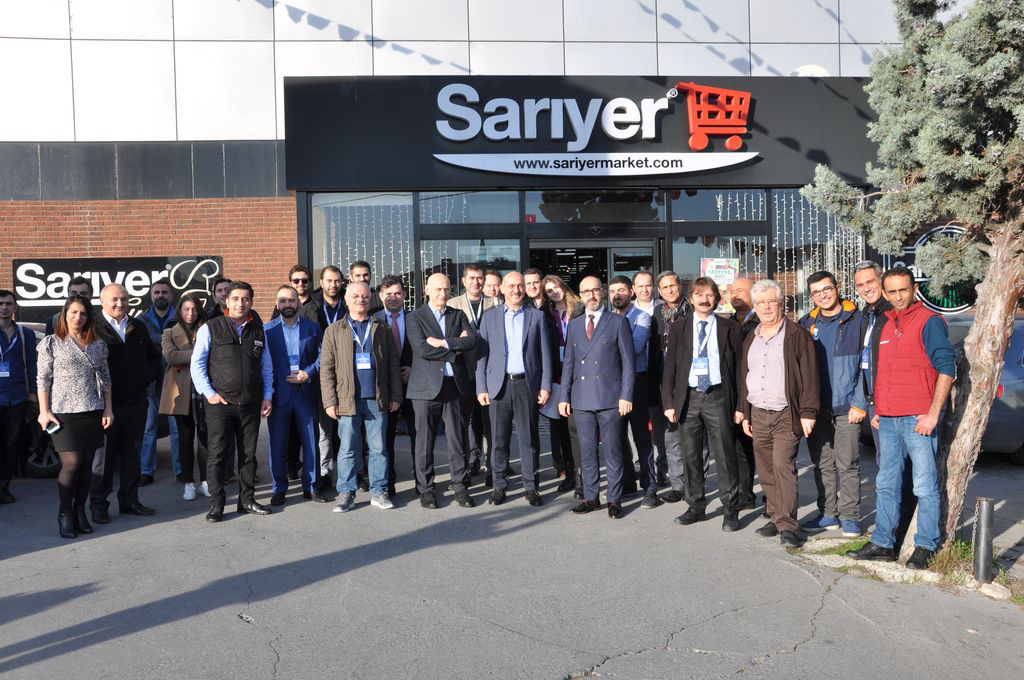SOSIAD Management Board Member and Coordinator of the Demonstration Project Kıvanç Aslantaş gave detailed information at the last thematical meeting of the Demonstration Project and elaborated on “Causes of and Expected Results from the Project”. Aslantaş first mentioned his 20 years of experience in refrigerating sector and conducting national and international applications in national and multinational companies including projects, productions, field applications, sales and aftersales services on carbon dioxide refrigeration and energy efficient solutions for the last 15 years. He continued his speech mentioning their aim was to create awareness on refrigerants with low GWP values in the scope of Demonstration Project realized with support of the Ministry of Environment and Urban Planning and UNIDO.
Aslantaş underlined that they spent considerable efforts to create awareness in the scope of the Project for overcoming existing judgements and habits regarding refrigeration systems and noted that sharing real data and experiences from field studies at vocational competence committees ensured regular information sharing about the topic. Aslantaş added that thematical meetings constituted the most significant leg of such information sharing and expressed that with pilot projects in İzmir, Ankara, and İstanbul existing systems were successfully transformed with alternative refrigerants and results were shared.
Aslantaş said: “The first pilot Project we started with the support of UNIDO and the Ministry of Environment and Urban Planning was an industrial refrigeration application at Algida facilities with a carbon dioxide and ammonia cascade system. The R717/R744 (NH3/CO2) cascade system applied in İzmir was compared to the existing R717 (NH3) system. At our Ankara ETİ Soda pilot Project, the existing R1233zd refrigerant was compared to R134a system at Process Chiller application. At three food retail store application in İstanbul, R448A & R452A were used to replace existing R-22&R404 refrigerants to compare old and new systems.”
Aslantaş also dwelled upon benefits of this entire process for investors and industrialists. “When you examine the cost of having a system, there is a large unseen part of the iceberg. What we want to focus on is this decision-making process that is highly important for industrialists and investors. Because right at that point, every detail of operation costs become apparent. Foremost among them there are important items such as energy consumption, production problem, maintenance costs, and production costs. That is why, a system must be evaluated not just with its initial investment costs but with the totality of all its operation costs. At that stage, it is important to transform data achieved to information and base decisions on this data. For this reason, we included remote monitoring on the systems at pilot projects in the scope of the Demonstration Project. Thanks to this, several values such as temperature measurement, heat value, and pressure value could be measured and compared.”
Aslantaş also touched upon SOSIAD’s “Real Alternatives 4 Life” Project in addition to the Demonstration Project and mentioned that they organize trainings in the scope of the Project that undertake to explain use of new generation refrigerants and increase competency. Himself a master trainer, Kıvanç Aslantaş noted that these trainings and certificate programs target increasing the number of trainers registered on the European Union database. He added that the Project covers mixed training programs on Refrigerant Emissions, Alternatives and Leakages, Refrigerants with Low GWP while focusing on combustible refrigerants (Hydrocarbon, HFO / A2L, R32) carbon dioxide and ammonia refrigeration systems. He continued to note that supporting F-Gas regulation applications and transition to low GWP alternatives which are among Project targets emerge as encouraging projects for a sustainable world just like the Demonstration Project. The Project Coordinator underlined that SOSIAD is the shareholder and leader of many national and international projects to minimize the risk of global warming.
Aslantaş concluded his remarks by saying the key to successful completion of this Project in a short time like 8 months is an amazing and harmonious teamwork and his wife and two sons were his major supporters in this process.
